
Occupy Central
Occupy Central is a civil disobedience movement which began in Hong Kong on September 28, 2014. It calls on thousands of protesters to block roads and paralyse Hong Kong's financial district if the Beijing and Hong Kong governments do not agree to implement universal suffrage for the chief executive election in 2017 and the Legislative Council elections in 2020 according to "international standards." The movement was initiated by Benny Tai Yiu-ting (戴耀廷), an associate professor of law at the University of Hong Kong, in January 2013.

Umbrella Movement
The Umbrella Movement (Chinese: 雨傘運動; pinyin: yǔsǎn yùndòng) is a loose political movement that was created spontaneously during the Hong Kong protests of 2014. Its name derives from the recognition of the umbrella as a symbol of defiance and resistance against the Hong Kong government, and the united grass-roots objection to the decision of the Standing Committee of the National People's Congress (NPCSC) of 31 August.
The movement consists of individuals numbering in the tens of thousands who participated in the protests that began on 28 September 2014, although Scholarism, the Hong Kong Federation of Students, Occupy Central with Love and Peace, groups are principally driving the demands for the rescission of the NPCSC decision.
The movement consists of individuals numbering in the tens of thousands who participated in the protests that began on 28 September 2014, although Scholarism, the Hong Kong Federation of Students, Occupy Central with Love and Peace, groups are principally driving the demands for the rescission of the NPCSC decision.
POST OCCUPY CENTRAL - DAY 72:
Full coverage of the day’s events




'Too terrified to travel': A new normal for Hong Kong's 'Occupy Generation'?
Story highlights
- Glacier Kwong spent two months protesting on the streets of Hong Kong last year
- She is now back at school and life has almost returned to normal
- But she says she faces harassment and fears detention if she travels to mainland China
Glacier Kwong is an 18-year-old student activist and founder of Keyboard Frontline, which campaigns for internet freedom. She spent two months on the streets of Hong Kong last year, taking part in pro-democracy protests. She is a guest on CNN's "On China" which examines the rise of the "Occupy Generation." The views expressed here are solely hers.
Hong Kong (CNN)There are no more tents on the streets in Admiralty and Mong Kok and, in some ways, everything is back to normal.
I have returned to my daily routine -- I go to school, attend lectures and work part time in a small tutorial center.
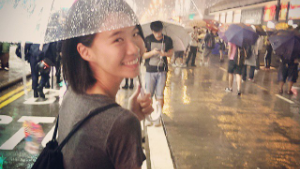
Glacier Kwong
My family is more than glad to see me resume my normal life. They don't have to worry about receiving calls in the middle of the night informing them that their daughter has been arrested because she broke into a government building.
My parents and my sister were really supportive when I was out there protesting. They never forced me to leave the streets.
However, my parents took away my passport when I was invited to testify before the British parliament. They told me this was way too political.
Terrified to travel to China
Attending lectures again actually feels really good.
I skipped most of my classes last semester as I used up all my energy during the nights protesting in Mong Kok or in Admiralty and, of course, my results were poor.
Getting back to school is also a relief because I no longer have to worry about being hit by a police baton or being sprayed with pepper spray or tear gas.
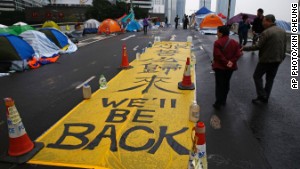
On China: Mission impossible01:36
And now I don't have to sleep on a solid concrete floor, I can finally get some rest at night.
Like other protest leaders, I've faced some harassment since we left the streets. My Facebook account has been hacked.
I'm also too terrified to travel across the border to mainland China.
One of my friends, another protester, was detained for more than four hours when she tried to travel there. Luckily, she was only questioned and then sent back to Hong Kong but I don't have the courage to go back.
Not giving up
But I'm not giving up on striving for freedom and democracy here.
I will continue to devote my time in Keyboard Frontline to defend internet freedom in Hong Kong.
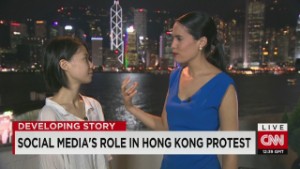
Hong Kong protest driven by technology 04:27
We want the government to abandon the implementation of the Right to be Forgotten (RTBF),which allows internet users to delete search results about themselves on search engines if the information is outdated or inadequate, as it will undoubtedly hinder the free flow of information. It's particularly important because Hong Kong has no archives law so there's little transparency.
And to prolong the spirit of "Umbrella Revolution," we are supporting a new political group formed online --Youngspiration. It will field candidates in the coming district council election.
We will do whatever we can to strive for freedom on the Internet as we believe the Internet plays an important role in spreading news and information.
I hope Hong Kong can become a better place for us Hong Kongers to live.
Perhaps I'm not the one most qualified to change the situation here, but I will not hesitate to try, because this is my hometown and I am bound by duty to protect it.
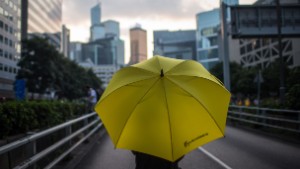
On China: Is Umbrella Movement political or economical? 01:43
Facing the Chinese government, a dictatorship that will not hesitate to hurt its own people, is really frightening.
I feel helpless sometimes but I know I am not alone. I have my friends and my partners with me to fight for freedom and democracy here.
With all of us making every effort to defend our rights, I know things will change eventually.
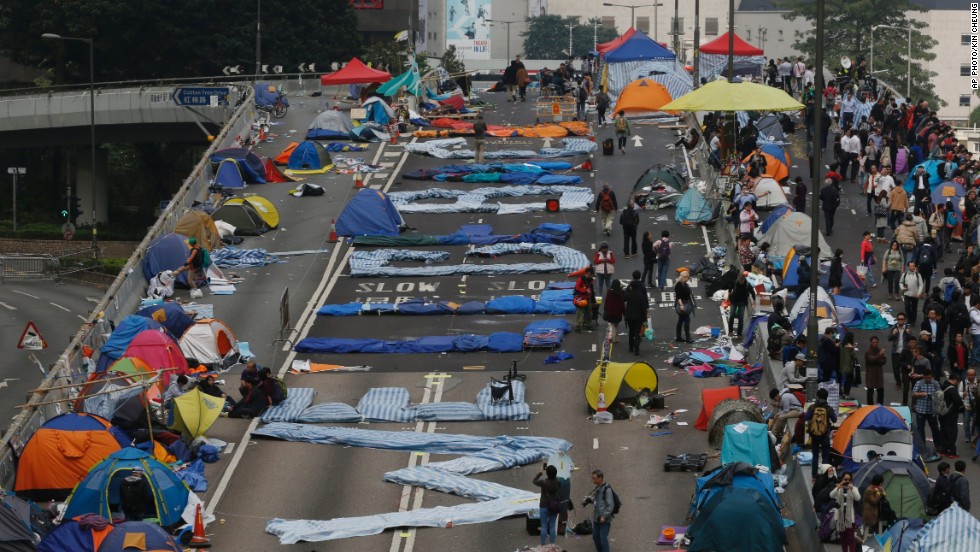
沒有留言:
張貼留言